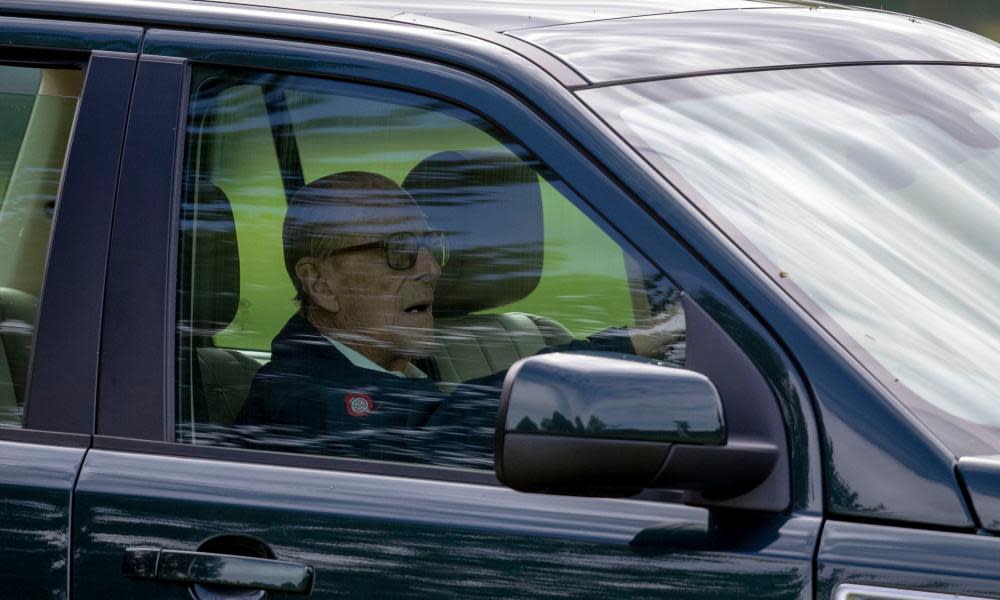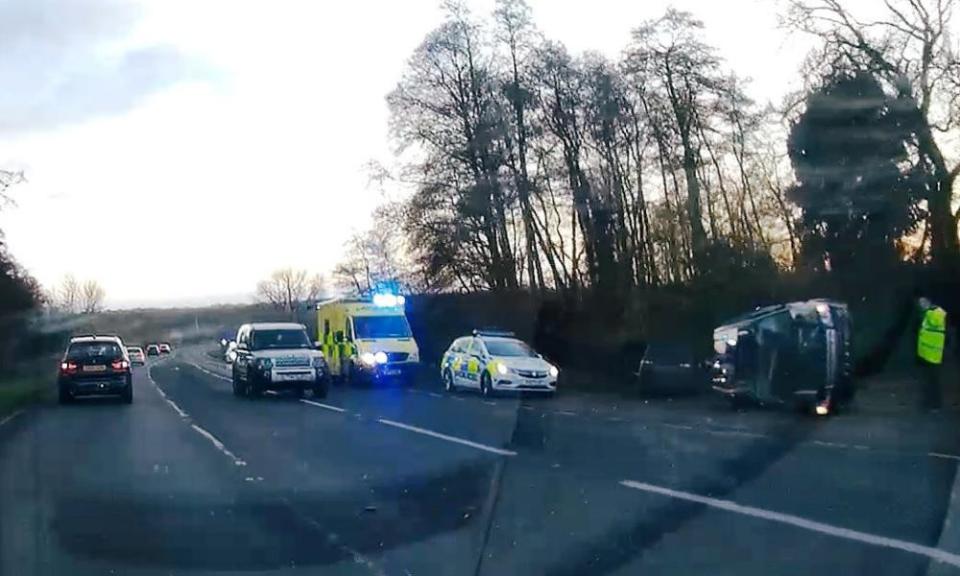Charity renews call for elderly driver eye tests after Prince Philip crash

Safety campaigners have renewed calls for eyesight and medical tests for elderly drivers after the Duke of Edinburgh’s car crash – although motoring organisations said young male drivers pose more risk than older ones.
Prince Philip, 97, was recovering at the Sandringham estate in Norfolk on Friday after the crash that left him “very shaken and shocked”, but otherwise uninjured.
In the aftermath of the incident the road safety charity Brake said checkups should be compulsory and suggested some older drivers could be putting people’s lives at risk.
Currently, British drivers have to reapply for their licence at the age of 70, and every three years thereafter, by self-certifying their sight is good enough to read a numberplate at 20 metres, and that they have no medical condition that prevents them from driving.
Joshua Harris, the director of campaigns at Brake, said: “With our ageing population it becomes ever more essential to have robust procedures in place that ensure older drivers are not inadvertently putting themselves and others at risk.
“Fitness to drive regulation should be strengthened with compulsory eyesight testing throughout your driving career, regular health checks for older drivers and greater communication between the DVLA and the medical profession.”
Harris said older drivers should visit their GP to have sight and hearing tests every year to check they were fit to continue, and not “put lives on the line when they get behind the wheel”.
However, motoring organisations said there was little evidence that older drivers were a danger, with around 5 million over-70s on the road. The AA president, Edmund King, said: “If driving restrictions based on age and safety were introduced we would be more likely to restrict young drivers rather than older drivers.
“Young, predominantly male, drivers are much more likely to crash within six months of passing their test than older drivers within six months of hanging up their keys.”
He added: “The decision to hang up your keys is a tough one but should be based on personal advice from your GP and family rather than being based on some arbitrary age. We all age differently and the car is an essential lifeline for many elderly people.”
King said car insurers’ risk profiles increased for over-75s, partly because drivers tended to be more frail and suffered more serious injuries. However, a driver over 75 could typically pay around £1,000 for a policy that would cost a middle-aged equivalent with a no-claims record around £5-600 – or a young driver, using a black box or telematics, around £1,500, he said.
A study in 2010 by the RAC Foundation found that while over-70s had low accident rates, there was evidence of the risk of collision increasing for over-80s, particularly those who only used their cars occasionally, and when turning right at junctions.
According to the Driver and Vehicle Licensing Agency, 110,790 people aged 90 or above still hold driving licences, with 314 centenarians legally on the roads – the oldest is 107.
The RAC said it would welcome retesting drivers of all ages every 10 years on knowledge of the Highway Code. Its road safety spokesperson Pete Williams said: “Rather than being age-related, it’s about how people update and maintain their knowledge and become aware of changes to signage, or things like smart motorways.”
While he said older drivers needed to ensure they had regular eye tests, RAC research showed 75% of over 70s had an eye test in the last year. He added: “There’s no actual evidence that suggests older drivers are a risk. Older drivers tend to be more mindful of their own limitations, and stick to local, familiar roads and avoid motorways.
“Young male drivers are far more likely to be involved in an accident – 17- to 19-year-olds are just 1.5% of drivers but are involved in 9% of road accidents, on lower mileages.”

Williams added the RAC would completely oppose any blanket ban. He said: “The freedom it gives older people is so valuable to maintain social and family contacts. We don’t have the transport networks in place everywhere to keep people mobile, we certainly wouldn’t want older people isolated when there is no statistical evidence that they present greater risk.”
The Royal Society for the Prevention of Accidents – of which Prince Philip was a former president – said that age was “a completely arbitrary and unreliable measure for assessing someone’s ability to drive”.
Nick Lloyd, the acting head of road safety for the organisation, said: “The experience developed by older drivers over a lifetime of driving helps them anticipate and cope with hazardous situations.”
He said older drivers, and their families, should be aware of health conditions and could speak to doctors if concerned, or get assessed for any need to improve their driving.

 Yahoo News
Yahoo News 
